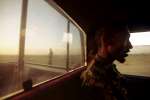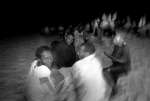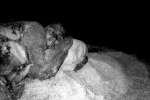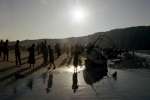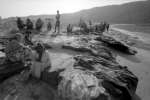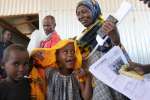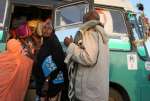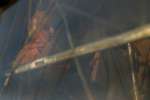- Text size
 |
|  |
|  |
| 
- عربي
Refugee self-reliance in Africa boosted by IKEA Foundation support
News Stories, 9 July 2015
GENEVA, JULY 8 (UNHCR) – Last month, Ethiopia was home to over 700,000 refugees, reinforcing its position as the largest refugee-hosting country in Africa and the fifth largest worldwide. At the same time a dire situation prevails in the Sahel region of Burkina Faso, which currently hosts the vast majority – 94 per cent – of the 33,692 Malian refugees who have fled violence in that country.
While security conditions in the region do not encourage UNHCR to promote the return home of these refugees and UNHCR's current level of funding continues to decline, it is becoming increasingly important to engage and foster private sector partnerships in the search for innovative new solutions to assist people who have been forced to flee their homes due to persecution and conflict.
UNHCR has quickly set about creating a number of key partnerships to support the creation of new processes and use technology to improve the lives of displaced people.
Of outmost importance is the partnership with IKEA, UNHCR's largest private sector partner. IKEA Foundation has helped UNHCR in finding innovative solutions, providing technical expertise and financial support. An example of such important support is IKEA's most recent donation of 38 million Euro to be used to support self-reliance efforts of both refugees and the local people hosting them who also need support.
This two year grant aims to make refugees and heavily stretched host communities more resilient in Burkina Faso and Ethiopia by supporting self-reliance initiatives, improving basic services and fostering peaceful co-existence.
"We are grateful to the IKEA Foundation for their unwavering support to people who have been forced to flee their homes," said UN High Commissioner for Refugees António Guterres. "Thanks to the Foundation's continued backing, hundreds of thousands of refugees in Ethiopia, Burkina Faso and other locations will be able to build better lives for themselves and their children."
The partnership with the IKEA foundation started in 2010 with a modest project to strengthen UNHCR's capacity to implement its operations more effectively. Since then, the IKEA Foundation has become UNHCR's biggest private sector partner in activities to help refugees to become more self-reliant less depended on humanitarian aid.
Specifically, the most recent support from the IKEA Foundation will help more than 200,000 Somali refugees in five refugee camps in the Dollo Ado region achieve self-reliance and address refugees' energy needs in a sustainable manner, as well as environmental rehabilitation programmes in and around the Dollo Ado refugee camps.
IKEA Foundation's latest contribution will also support refugees in Burkina Faso's Sahel region. In this dry region, these refugees together with local communities are mostly pastoralists, who own cows, goats, sheep, donkeys, and camels, and their traditional diet consists of milk and millet. Though, due to the distance to their livestock, the refugees appear to be unable to access milk on a regular basis. This high demand and this low supply combined have had a negative impact on the health of the populations, notably children in refugee camps, some of which remain malnourished despite the food assistance of UNHCR's partners.
"I arrived in Burkina Faso with my family from Timbuktu on 5 February 2012. I own livestock, but my animals are far away from the camp. I want to take part in the project as a milk producer, working closely with the local population," said Mohammed, a livestock farmer in Burkina Faso.
IKEA support will enable thousands of people like Mohammed to earn an income, participate in their local communities and keep their children in school.
Per Heggenes, CEO of the IKEA Foundation added: "We believe that every child deserves a quality education, a sustainable family income and a healthy start in life. That's why we are supporting UNHCR's work to bring education and clean energy to refugees living in UNHCR camps and to help refugee families become more self-reliant. We want their children to have better opportunities for the future."



















